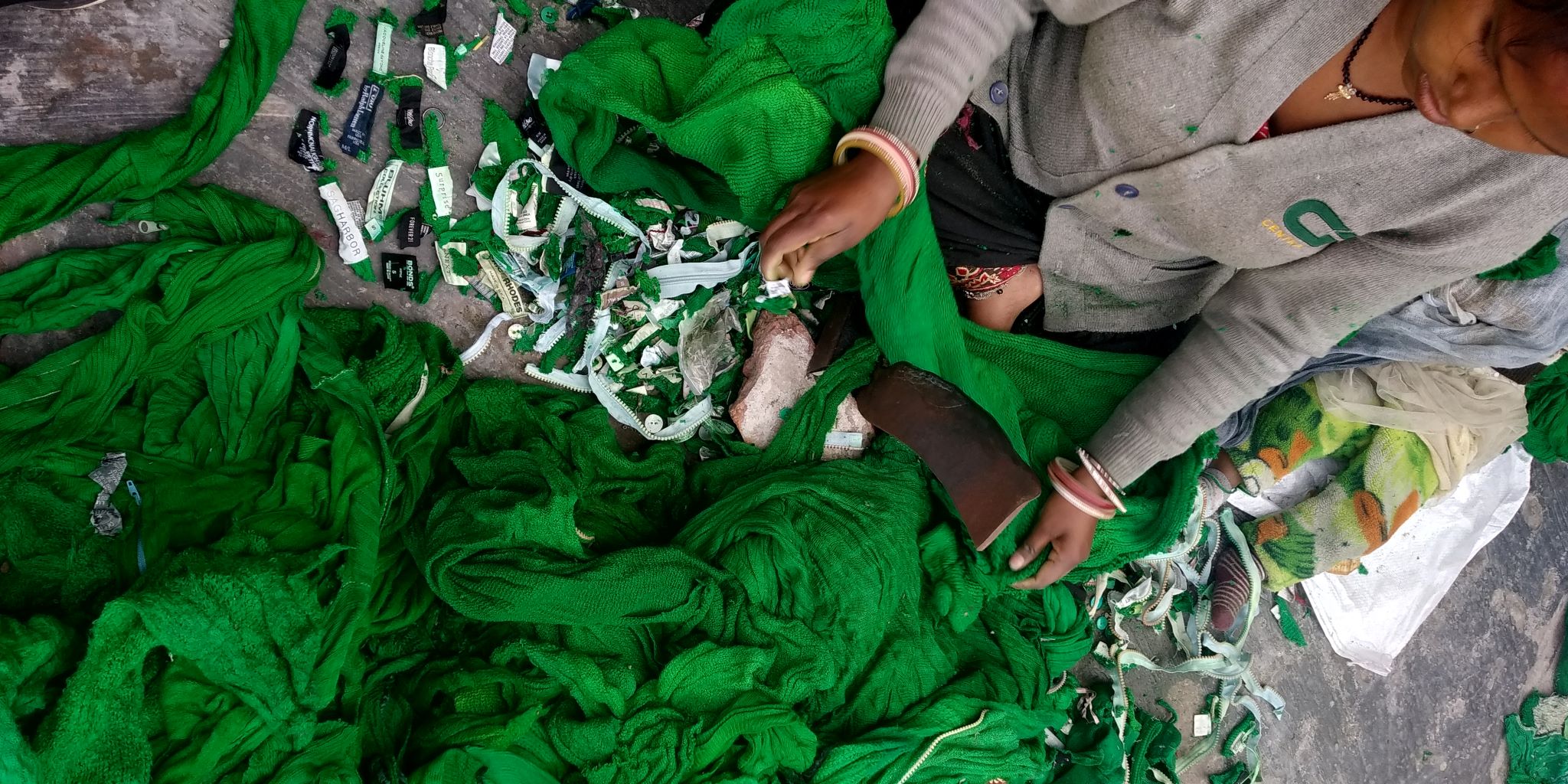
Spearheaded by Fashion for Good, the ‘Sorting For Circularity India Project’ aims to build an infrastructure towards greater circularity in the years to come.
The project brings together industry players including Fashion for Good partners Adidas, Levi Strauss & Co, and PVH Corp, Arvind Limited, Birla Cellulose and Welspun India. A key technology partner for the project is Fashion for Good innovator Reverse Resources that provides the analysis of the pre-consumer textile waste streams in addition to designing and running the pre-consumer pilot. The project is supported through catalytic funding provided by Laudes Foundation.
India’s position as a manufacturing and consumption textiles market means it has large streams of pre-consumer as well as domestic post-consumer waste. Fashion for Good explains pre-consumer waste is only partially recycled, with the remaining portion mostly downcycled to products of inferior quality.
Domestic post-consumer waste on the other hand is exceptionally difficult to trace, with limited data available to understand the waste, quantities, composition and other factors key to its recycling.
India is also one of the largest recipients of global post-consumer textile waste, with millions of tonnes, to the value of more than EUR100m, of discarded textile imported and manually sorted through various hubs, according to Fashion for Good. Similar to domestic waste, limited information on this imported waste exists.
In addition to the lack of accurate information, it is said that no technologies currently exist that organise, categorise and sort materials to ensure quality textile waste is accessible for recyclers, who require sorted feedstocks in large volumes. While these are not the only challenges faced by recyclers, they are significant barriers to the growth of chemical recycling technologies in India.
The Sorting for Circularity India project aims to address these challenges and build an accessible infrastructure for manufacturers, sorters, collectors, waste handlers and recyclers in India.
“India is a critical hub, not only for textile production and consumption but also as a global post-consumer textile waste destination. This project is pivotal to understanding the size of this considerable market and providing the incentive, tools and means for the industry to benefit from the wealth of this untapped resource,” says Katrin Ley, managing director at Fashion for Good.
Over 15 months, the project will demonstrate a new textile value chain across three phases. Firstly, by obtaining an overall understanding of the textile waste supply chain of pre and post-consumer textile waste in India. Secondly, by identifying and piloting technologies that enable the traceability of textile waste and its accessibility to existing recyclers. And finally, providing recyclers with access to textile waste feedstocks that meet the quality parameters of advanced recycling technologies, giving these technologies an incentive to scale in India.
Kicking off earlier this month, the first phase to map the current supply chain of textile waste, draws on the expertise and technology of Reverse Resources. This phase also leverages the knowledge, experience and on-the-ground support of local stakeholders Sattva Consulting, a social development consulting and research firm with experience in undertaking landscape, market and community-based studies. It also features Saahas Zero Waste, which is proficient in waste management with a stronghold on the informal sector in India and is supported by suppliers selected by the project industry partners who participate in the study. The results and learnings from this phase will be shared in an open-source report available to the public, to be released in mid-2022.
With the launch of the Sorting for Circularity India Project, Fashion for Good calls on industry stakeholders within the textile waste sector in India to collaborate pn the project and map the Indian textile waste landscape.
Voluntary data and resources are crucial to obtaining real-world estimates that will be beneficial to mapping the landscape and successfully testing technologies that are best placed to address the challenges, it says.
“While the global fashion industry is on a firm path towards 100% circularity, there are amazing business opportunities and low-hanging fruits for manufacturers
starting the journey. One of such is using digital tools to make textile waste flows visible in real-time, and act smartly to close the loop of these flows transparently, as
we’ve already seen from our work in Bangladesh,” says Ann Runnel, CEO at Reverse Resources.
She adds: “We are delighted to roll up our sleeves in India to show how powerful well-planned collaboration and common goal-setting can be with the help of digitalisation.”



